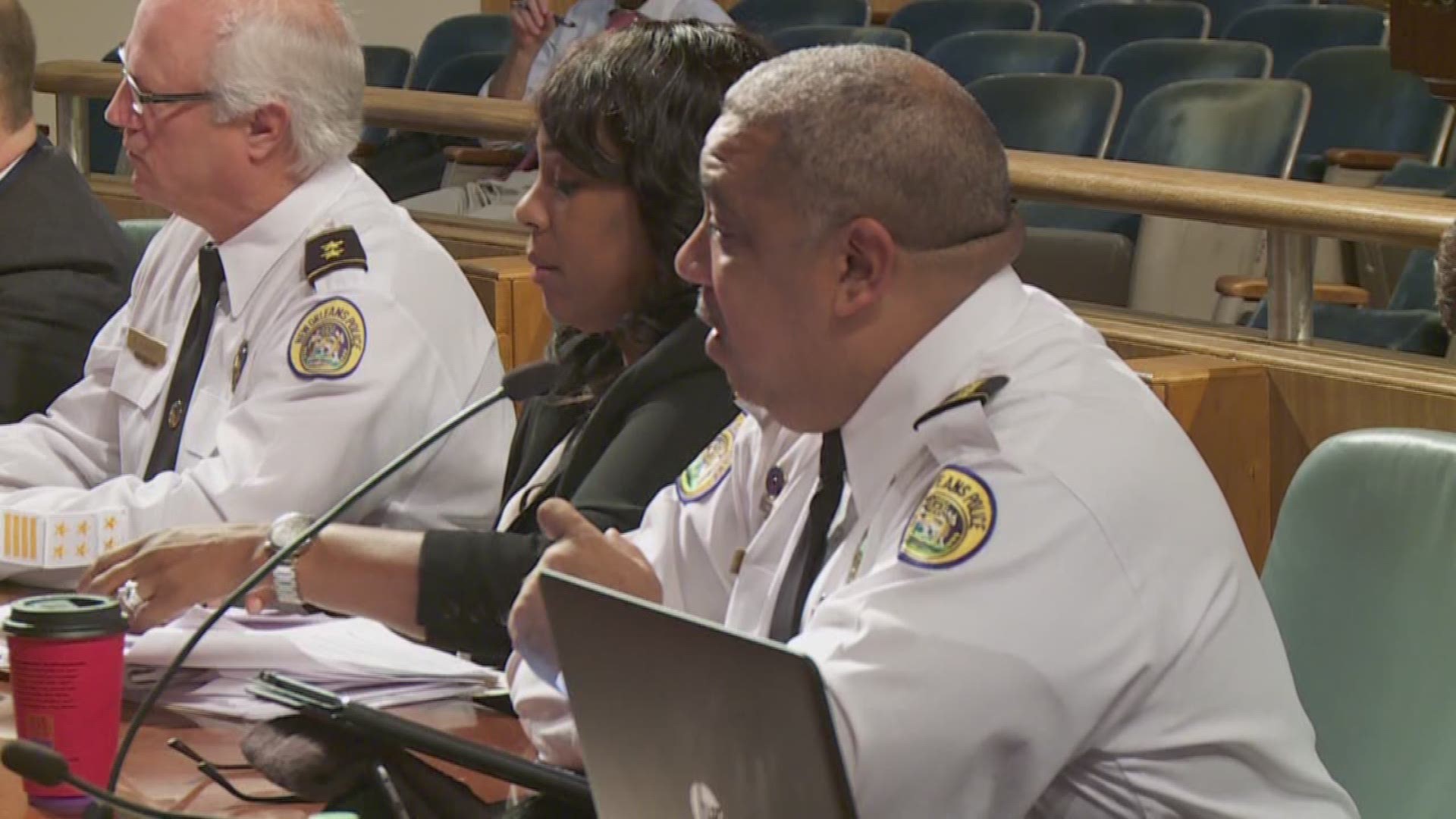NEW ORLEANS – Reacting to a joint investigation by WWL-TV and The New Orleans Advocate, New Orleans Police Superintendent Michael Harrison has implemented a new policy to try to limit the number of crimes erroneously marked as “unfounded” calls by officers.
Reporters at the TV station and newspaper analyzed nearly 3 million calls for service since 2010 and found that nearly 18 percent are being marked as “unfounded,” which is supposed to mean no crime was committed. Another 6 percent are designated “gone on arrival,” meaning a crime may have happened but the victim was not there when police arrived.
In a recent interview, Harrison acknowledged that veteran officers, who may be used to an old system in which “unfounded/gone on arrival” was a single disposition, are erroneously marking up incidents as “unfounded” when they should be “gone on arrival,” which would trigger more scrutiny.
In the joint WWL/Advocate investigation, we detailed several cases where a lack of communication by officers with the city’s emergency communications center, which includes EMS or the fire department, led to erroneous use of the “unfounded” label.
For instance, California tourist Doug David was paralyzed in a beating in the Marigny and was taken by EMS to the hospital. But a police officer that got to the scene 40 minutes later marked the case “unfounded.”
Sofia Froeba was knocked unconscious in the French Quarter and was also taken to the hospital before police could arrive. The patrolman who went to the scene marked it “unfounded” and that didn’t get changed until she was finally able to get a police report written two months later.
And Lindsay Nichols was shot to death in eastern New Orleans after she called 911 while a gunman was threatening to kill her. NOPD said the dispatcher failed to tell officers that her life was in imminent danger. An officer arrived at least 10 minutes later and marked it “unfounded” 22 minutes after the call came in.
Harrison said he is trying to address that with new policies requiring extra scrutiny on any call that gets marked "unfounded." First, a supervisor must sign off on any “unfounded” disposition. Second, a daily report of “unfounded” calls will go to desk officers so they can reach out to each caller and make sure there’s truly nothing to investigate.
“Now, we're implementing a protocol for supervisory approval for all unfounded calls,” Harrison said at a City Council meeting last week. And “someone, whether it's in communications or at the district level has to contact that complainant to ascertain if a crime was committed and if it was, we're going to dispatch to it and make sure we capture that.”

